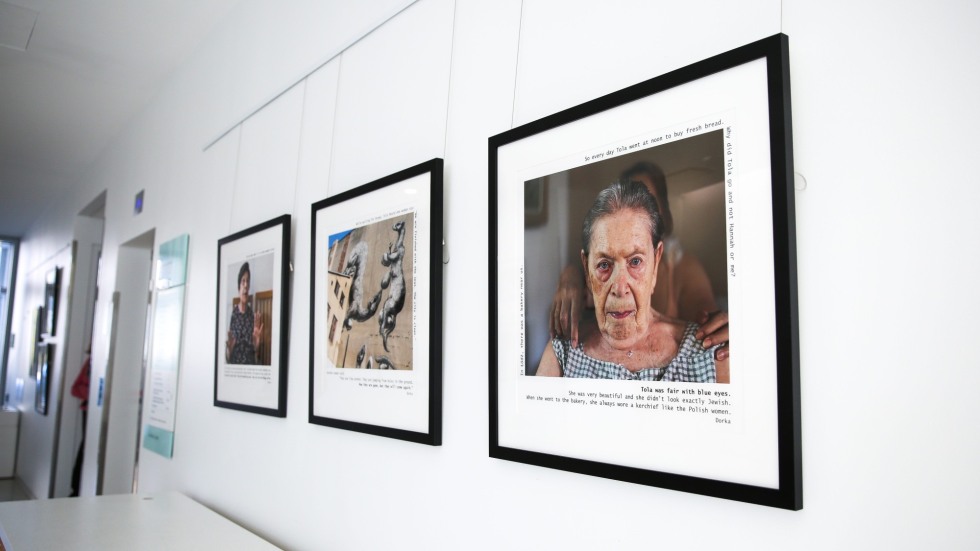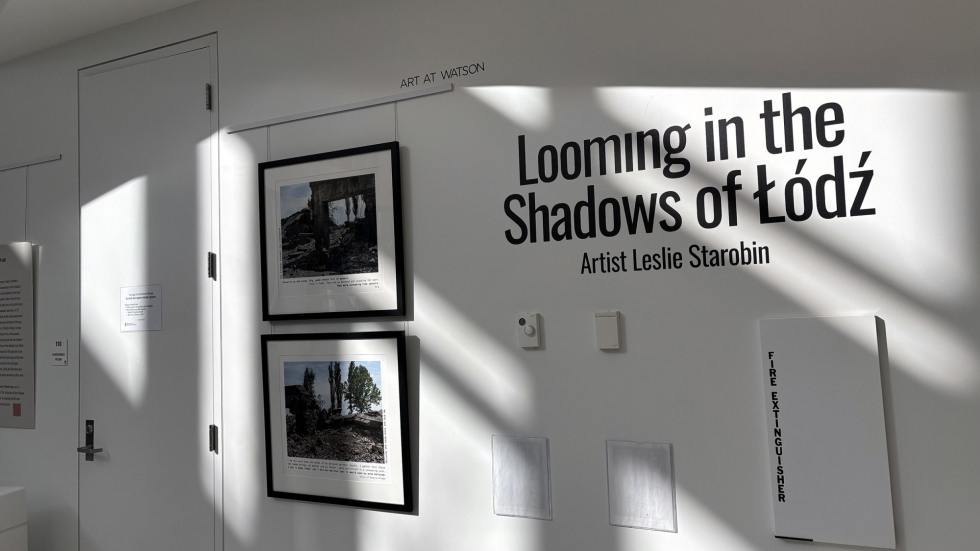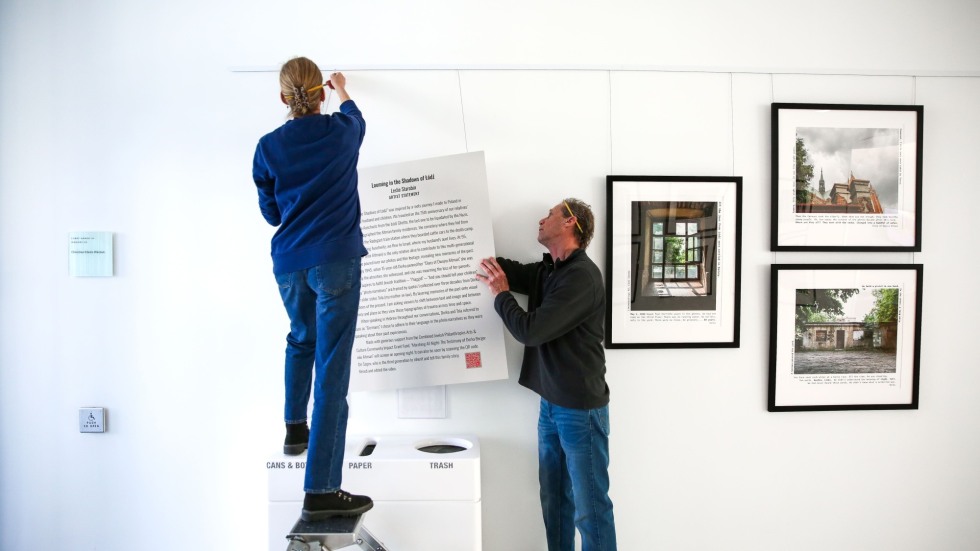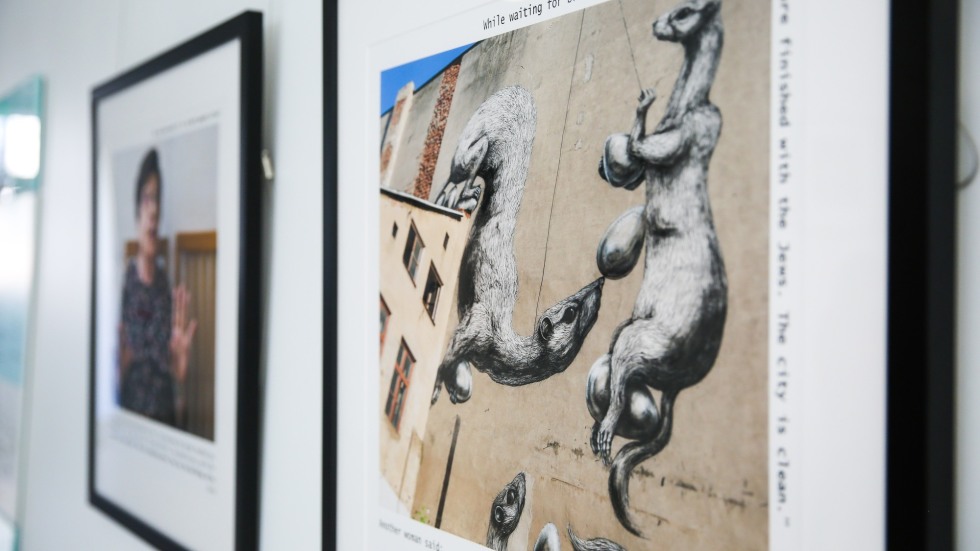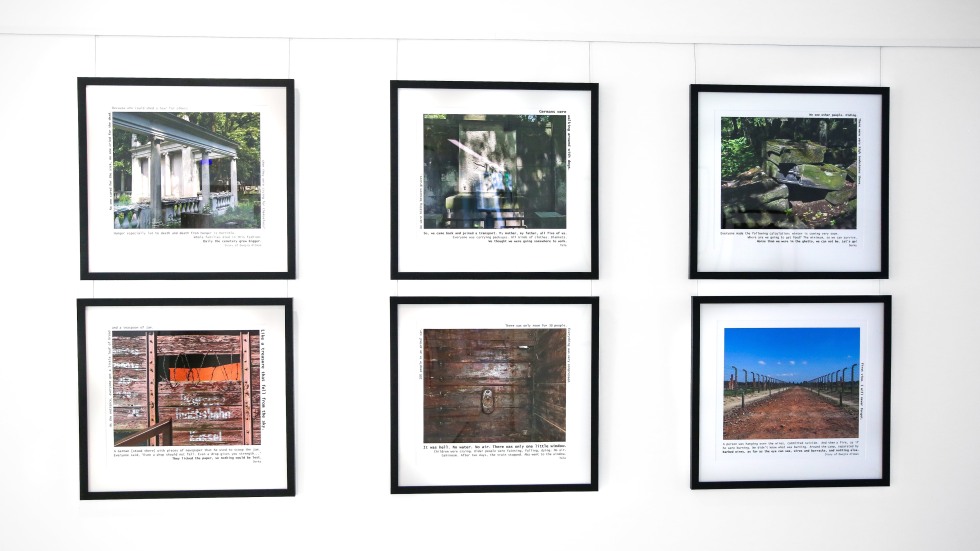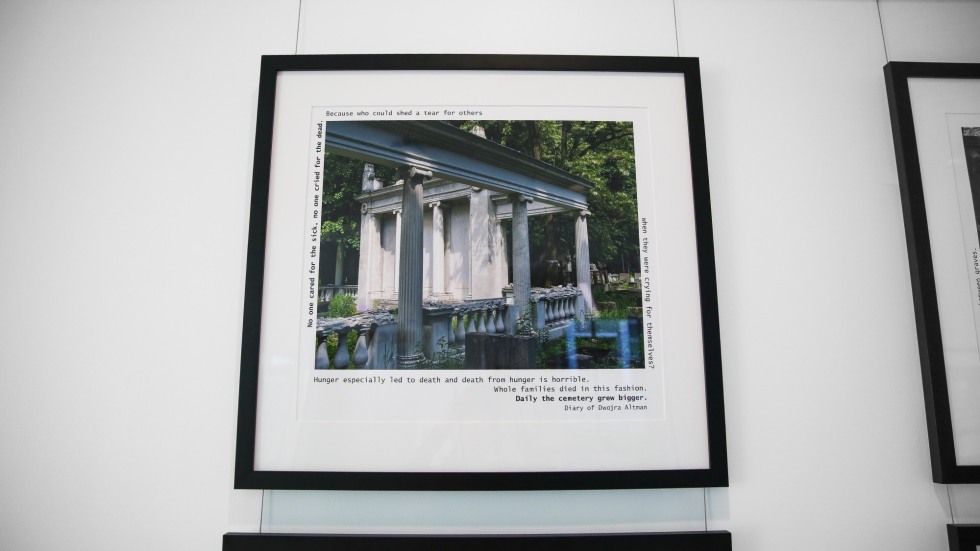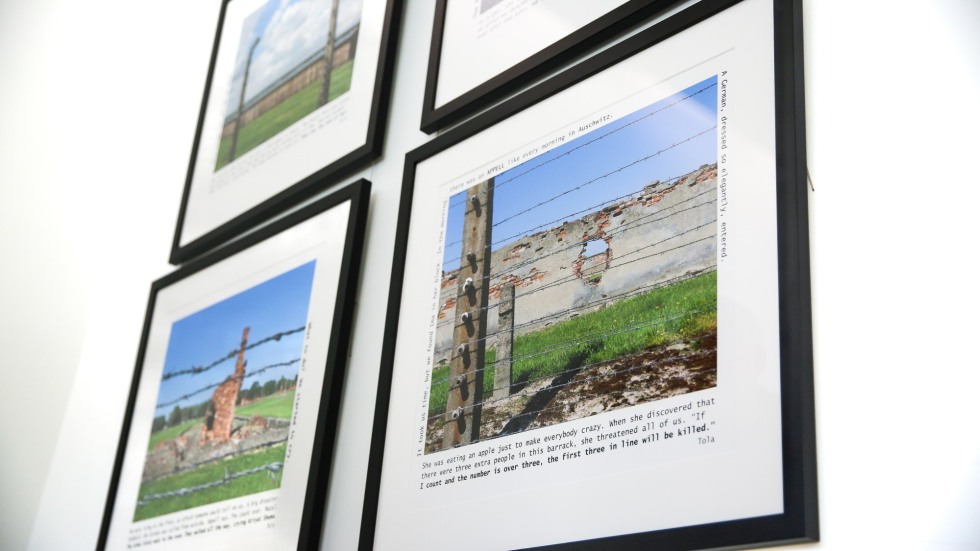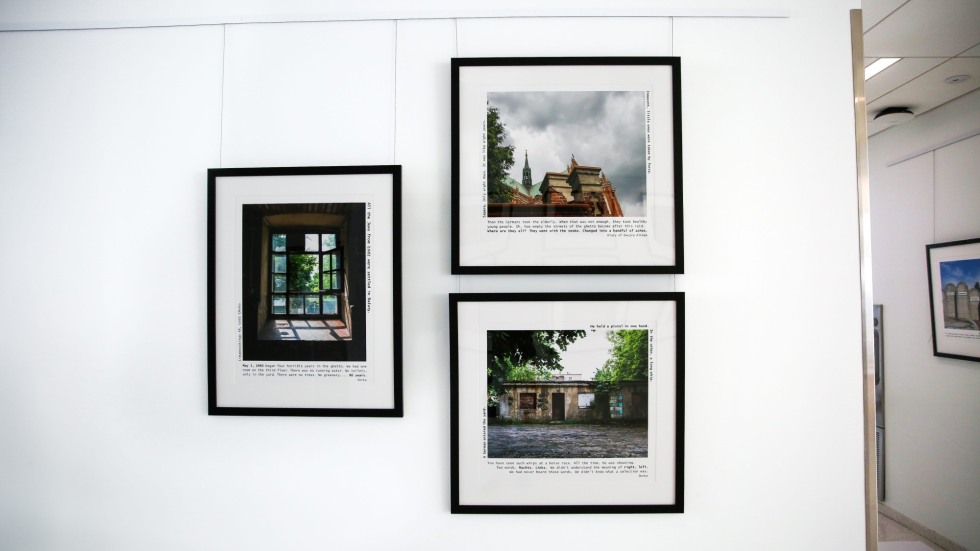In Art at Watson's latest exhibition, "Looming in the Shadows of Lodz" by Massachusetts-based artist Leslie Starobin, the past and the present collide with family and political history. Through photographs and text, the exhibition tells the story of two sisters who survived the Holocaust, their plight after liberation from Auschwitz-Birkenau, and how those memories have been passed down through generations.
The images, which Starobin calls "photo narratives," depict scenes from present-day Lodz, Poland and the Auschwitz-Birkenau death camp, paired with captions drawn from the memories of the two sisters, relatives of Starobin.
"In challenging periods, art can serve as an educational catalyst," said Starobin. "'Looming in the Shadows of Lodz' underscores how artists interpret history through a personal lens, encouraging viewers to respond in part based on their lived experiences. Inviting meaningful dialogue and reflection, the artworks speak to those familiar and unfamiliar with this chapter in world history."
Starobin was inspired to create "Looming in the Shadows of Lodz" after a "roots journey" she made to Poland in 2019 with her husband and children. "We traveled on the 75th anniversary of our relatives' deportation to Auschwitz from the Lodz Ghetto, the last one to be liquidated by the Nazis," she said. "In Lodz, I photographed the Altman family residences, the cemetery where they hid from the Nazis, and the Radegast train station where they boarded cattle cars to the death camp."
